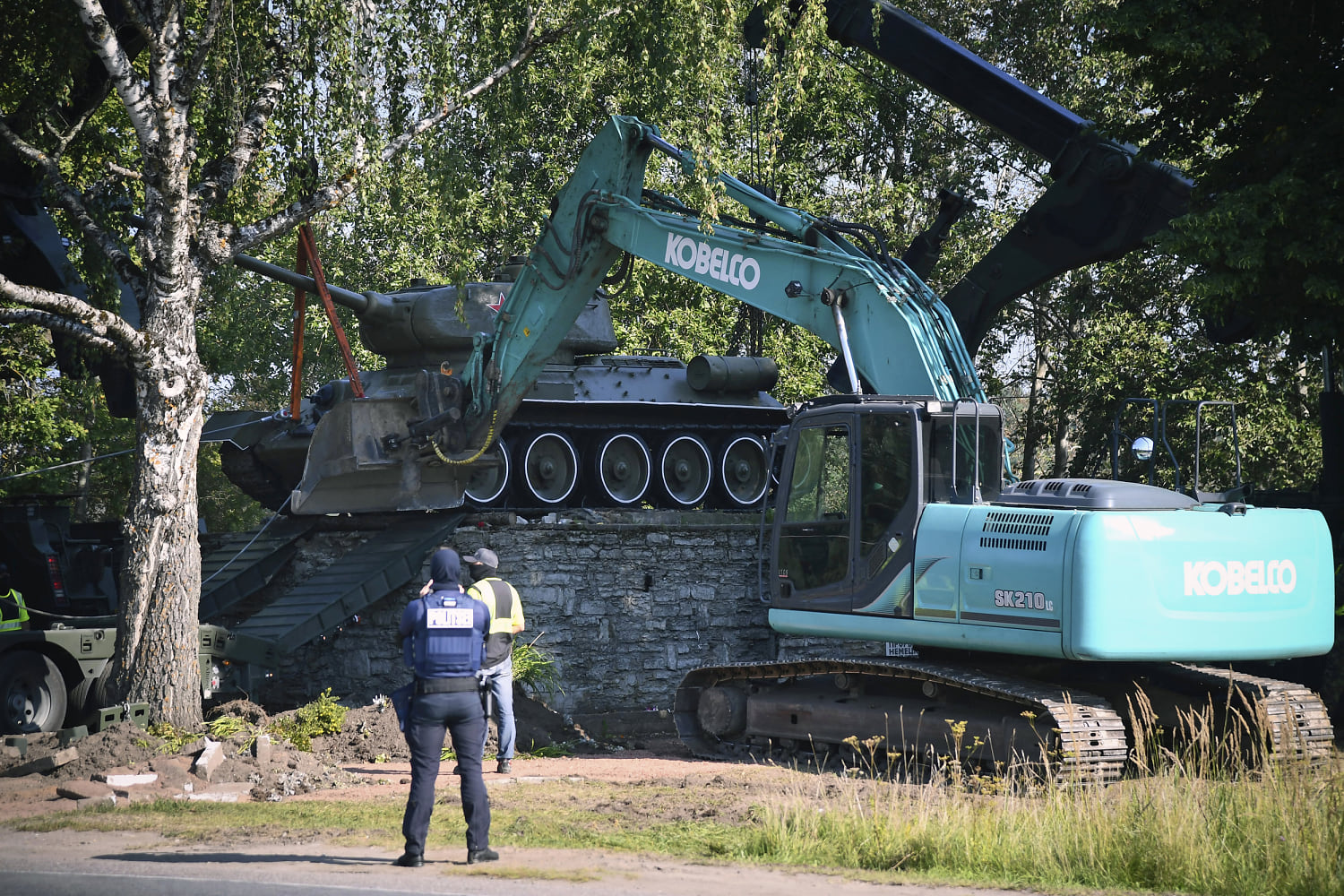Russia puts leader of Estonia on wanted list over removal of Soviet-era

Mika Golubovsky, editor of Mediazona’s English-language service, told The Associated Press that Kallas and other politicians from the Baltic nations have been in the Interior Ministry’s wanted database since mid-October and was the only head of state on the list.
Russian Foreign Ministry spokeswoman Maria Zakharova confirmed that Kallas and Peterkop were on the list because of their involvement in the removal of monuments.
Asked about the move, Kremlin spokesman Dmitry Peskov said it was a response to action by Kallas and others who “have taken hostile action toward historic memory and our country.”
Russia has laws criminalizing the “rehabilitation of Nazism” that include punishing the desecration of war memorials. Russia’s Investigative Committee, the country’s top criminal investigation agency, has a department dealing with alleged “falsification of history” and “rehabilitation of Nazism,” which has ramped up its action since the start of the war, according to Mediazona, which broke the news on Kallas’ addition to the wanted list.
Mediazona, which published a long survey of the list, said it also includes scores of Ukrainian officials and foreign nationals accused of fighting alongside Ukrainian armed forces.
Russian President Vladimir Putin has said that ridding Ukraine of far-right, neo-Nazi groups is one of the central aims of the war, but he has offered no proof to back his repeated claims that such groups have a decisive voice in shaping Ukraine’s policies.
The inclusion of Kallas could also mark an attempt by Moscow to counter last year’s arrest warrant against Putin issued by the International Criminal Court over the alleged deportation of Ukrainian children to Russia. The Interior Ministry’s list also includes ICC President Piotr Hofmanski.
While it means little in practical terms since contacts between Moscow and the West have been frozen during the conflict, it comes at a time when European members of NATO are growing increasingly worried about how the U.S. election will affect the alliance.
Former U.S. President Donald Trump has rekindled the fears of NATO allies that he could allow Russia to expand its aggression in Europe if he returns to the White House.
“‘You didn’t pay? You’re delinquent?’” the Republican front-runner recently said he told an unidentified NATO member during his presidency. “‘No, I would not protect you. In fact, I would encourage them to do whatever the hell they want. You gotta pay.’”
That statement sharply contrasted with U.S. President Joe Biden’s pledge “to defend every inch of NATO territory,” as the alliance commits all members to do in case of attack.
Trump’s statement shocked many in Europe, drawing a pledge from Poland, France and Germany to bolster Europe’s security and defense power.
U.S. Ambassador to NATO Julianne Smith told reporters Tuesday that “encouraging the Kremlin to attack any NATO ally or alliance territory really puts our soldiers -– U.S. soldiers and our allies’ soldiers — in greater danger. Doing so, making those types of statements, is dangerous and frankly irresponsible.”
While Putin insists he has no plans to strike any NATO countries unless they attack first, Estonia’s Foreign Intelligence Service released an annual report Tuesday noting that Russia has significantly increased weapons output and warning that “the Kremlin is probably anticipating a possible conflict with NATO within the next decade.”
Read More: Russia puts leader of Estonia on wanted list over removal of Soviet-era

